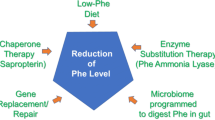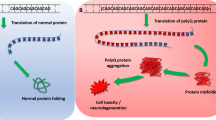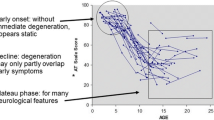Abstract.
Glycerol kinase deficiency (GKD) occurs as part of an Xp21 contiguous gene syndrome or as isolated GKD. The isolated form can be either symptomatic with episodic metabolic and central nervous system (CNS) decompensation or asymptomatic with hyperglycerolemia and glyceroluria only. To better understand the pathogenesis of isolated GKD, we sought individuals with point mutations in the GK coding region and measured their GK enzyme activities. We identified six individuals with missense mutations: four (N288D, A305V, M428T, and Q438R) among males who were asymptomatic and two (D198G, R405Q) in individuals who were symptomatic. GK activity measured in lymphoblastoid cell lines or fibroblasts was similar for the symptomatic and the asymptomatic individuals. Mapping of the individuals' missense mutations to the three-dimensional structure of Escherichia coli GK revealed that the symptomatic individuals' mutations are in the same region as a subset of the mutations among the asymptomatic individuals, adjacent to the active-site cleft. We conclude that, like many other disorders, GK genotype does not predict GKD phenotype. We hypothesize that the phenotype of an individual with GKD is a complex trait influenced by additional, independently inherited genes.
Similar content being viewed by others
Author information
Authors and Affiliations
Additional information
Electronic Publication
Rights and permissions
About this article
Cite this article
Dipple, K., Zhang, YH., Huang, BL. et al. Glycerol kinase deficiency: Evidence for complexity in a single gene disorder. Hum Genet 109, 55–62 (2001). https://doi.org/10.1007/s004390100545
Received:
Accepted:
Published:
Issue Date:
DOI: https://doi.org/10.1007/s004390100545




